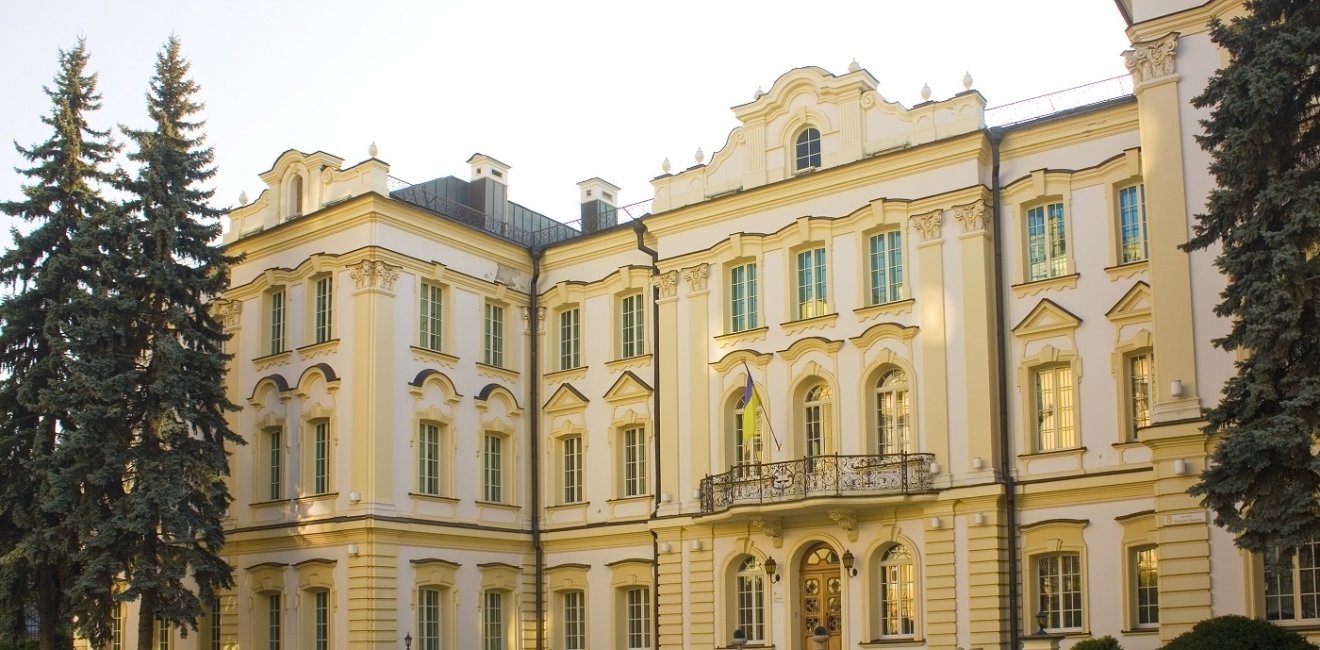
A blog of the Kennan Institute
In 2011, Major General Charles Dunlap Jr. introduced the concept of “lawfare,” defining it as “the strategy of using—or misusing—law as a substitute for traditional military means to achieve a warfighting objective.” This concept was further developed, and in 2017 John Moore said that even though NATO has no formal definition or doctrine of hybrid warfare, it is time to “bring together the abundant experience and wisdom of our officers, civilians, legal experts and Senior Mentors” to design a “definitive, official guidance in order to keep pace with potential adversaries in this field.”
The lawfare concept has gained significance in the context of a full-scale war against Ukraine. It can be seen in a series of costly lawsuits submitted to investment arbitration forums by businesses—both Ukrainian and foreign—located in the territory of Ukraine. This country has been under Russian occupation, or, in the terms of the Geneva Convention, under the “effective control” of Russia.
As Eric Chang underlines in an August 2022 analysis, Ukraine’s strategy is “even more remarkable because it separately leverages the international law of occupation and other LOAC [law of armed conflict] principles to achieve its lawfare objectives.” This strategy uses international investment arbitration (IIA) through the options envisaged by Art. 9(2) of the Agreement between the Government of the Russian Federation and the Cabinet of Ministers of Ukraine on the Encouragement and Mutual Protection of Investments (RUBIT, signed in Moscow, November 27, 1998).
Surely, any proceedings revolving around Russian aggression will raise complex international legal issues.
The foremost issue is the principle of immunity, propped up by the UN Convention on Jurisdictional Immunities of States and Their Property (2004), solidified by the decision of the International Court of Justice of February 3, 2012, “Jurisdictional Immunities of the State.” Normally, in lawsuits against a foreign country, a request must be made to that country’s embassy, and only in the case of consent does the domestic court of the state which has filed the request have the right to consider the lawsuit. However, in the circumstances of this war, there is no chance of communicating with the Russian embassy, let alone gaining its consent to the jurisdiction of Ukrainian courts. In April 2022, the Ukrainian Supreme Court ruled that nevertheless proceedings could be commenced, and the court expanded its reasoning a month later, with the argument that human rights were more important than absolute immunity.
These decisions became the subject of debate, especially in terms of the principles of procedural due process, namely the due notice of the respondent. Despite the Great Chamber’s attempt to address this issue by ruling that the information on proceedings against the aggressor state should be published on the Supreme Court’s website, Ukrainian judgements must meet all the standards of just process.
Because of these drawbacks, IIA offers a lot of flexibility, which cannot be achieved within domestic court systems.
First, the choice of the forum is in the hands of the claimants. According to Art. 9(2) of the RUBIT, there are three options for an arbitration forum. Surely, the claim can be filed after a six month “cooling off” period, which is envisaged by Art. 9(1) of the RUBIT. However, the absence of Russia’s consent to arbitration would not preclude the commencement of proceedings.
Second, one of the most attractive aspects of arbitration is the third-party funding (TPF) option. There are a huge number of reports and case law on this matter, so we’ll not get into the details here. Currently, all the parties involved in TPF are actively exploring new models as well as reducing risk thresholds while engaging in arbitration funding.
Third, when it comes to enforcement, Art. 3 of the New York Convention states that each Contracting State shall recognize arbitral awards as binding. According to Art. 2(3) of the Judgement Convention, the convention shall not apply to arbitration and related proceedings, but the New York Convention does not contain any limitations on the states where the award can be enforced (see Franz Sedelmeyer v. Russian Federation). IIA allows a party to obtain an award against Russia and enforce it without Russia’s consent.
Fourth, the doors of international investment arbitration are open to medium and small businesses as well as to foreign investors. As Eric Chang explains in his lawfare report, a large number of businesses in Ukraine, ranging from major corporations to small local shops—including foreign investors, whose states of origin have also signed bilateral investment treaties with Russia—may pursue investment treaty claims against Russia for different types of damages resulting from its invasion and occupation.
The abovementioned advantages of IIA, particularly the freedom of proceedings commencement and the options for award enforcement, turn it into a powerful weapon against the enemy and a means of protecting national interests. The monetary damage claims in IIA lawsuits submitted by Ukrainian claimants since 2014 are so large (circa 7.3 billion USD) that they would affect the economy of any state. Russia has already tacitly acknowledged the effectiveness of the use of IIA, as it has refused to participate in arbitration defense and instead struggles to challenge award enforcement in multiple jurisdictions around the world (e.g., in Switzerland).
Ukrainian business has a unique chance here to become a noble driving force and to set precedent, shaping our understanding of how IIA—a commercial lawsuit—can become an effective means to oppose aggression.
The opinions expressed in this article are those solely of the author and do not reflect the views of the Kennan Institute.
Author


Kennan Institute
After more than 50 years as a vital part of the Wilson Center legacy, the Kennan Institute has become an independent think tank. You can find the current website for the Kennan Institute at kennaninstitute.org. Please look for future announcements about partnership activities between the Wilson Center and the Kennan Institute at Wilson Center Press Room. The Wilson Center is proud of its historic connection to the Kennan Institute and looks forward to supporting its activities as an independent center of knowledge. The Kennan Institute is committed to improving American understanding of Russia, Ukraine, Central Asia, the South Caucasus, and the surrounding region through research and exchange. Read more

Explore More in Focus Ukraine
Browse Focus Ukraine
Talking to the Dead to Heal the Living

Ukrainian Issue in Polish Elections


